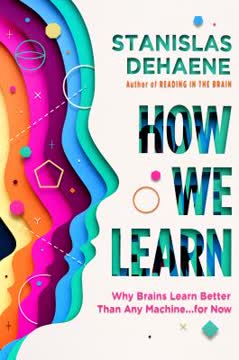Key Takeaways
1. Writing is a learnable trade, not an inborn talent
"Like mathematics or literary criticism at the simplest level, good writing at the simplest level follows learnable rules."
Writing is a skill. Like any other skill, it can be developed through practice, study, and dedication. Many people mistakenly believe that writing ability is an innate talent, but this is far from the truth. Good writing is the result of:
- Consistent practice and refinement
- Study of effective writing techniques and styles
- Willingness to receive and incorporate feedback
- Familiarity with grammar, punctuation, and language conventions
By approaching writing as a craft to be honed rather than a gift bestowed upon a select few, anyone can improve their writing skills significantly. This mindset shift is crucial for those who wish to become better writers, regardless of their starting point or chosen field.
2. Good writing is clear, concise, and reader-focused
"You must reread in the rapid way to get the experience the reader will have, and to make the experience tolerable."
Prioritize clarity and brevity. Good writing is not about impressing readers with complex vocabulary or intricate sentence structures. Instead, it focuses on conveying ideas clearly and efficiently. To achieve this:
- Write with your audience in mind
- Eliminate unnecessary words and phrases
- Use simple, direct language whenever possible
- Organize your thoughts logically
Remember that your goal as a writer is to communicate effectively, not to showcase your extensive vocabulary. By putting yourself in the reader's shoes and considering their experience, you can create more engaging and accessible content.
3. Effective writing starts with early drafting and thorough revision
"Easy writing makes hard reading."
Begin writing early. Many writers struggle with perfectionism, which can lead to procrastination. Instead of waiting for the perfect moment or inspiration, start writing as soon as possible. This approach allows you to:
- Generate ideas and content more freely
- Identify gaps in your knowledge or argument
- Have ample time for revision and refinement
Revision is a crucial part of the writing process. It involves:
- Rereading your work with a critical eye
- Checking for clarity, coherence, and consistency
- Eliminating redundancies and tightening prose
- Seeking feedback from others
Remember that good writing often emerges through multiple drafts and revisions. Embrace the iterative nature of the writing process to produce your best work.
4. Coherence and flow are crucial for readability
"Make writing hang together. The reader can understand writing that hangs together, from the level of phrases up to entire books."
Ensure logical progression. Coherence in writing refers to the smooth flow of ideas from one sentence to the next, and from one paragraph to another. To achieve coherence:
- Use transitional words and phrases
- Maintain a consistent theme or argument throughout your piece
- Organize your thoughts in a logical sequence
- Ensure each paragraph has a clear main idea
Techniques for improving flow:
- Vary sentence length and structure
- Use topic sentences to introduce new ideas
- Link paragraphs with transitional sentences
- Read your work aloud to identify awkward phrasing or abrupt transitions
By focusing on coherence and flow, you make your writing more accessible and enjoyable for readers, increasing the likelihood that they will engage with and understand your ideas.
5. Active voice and concrete language enhance clarity
"Find the action in a sentence and express it in a verb."
Prioritize active voice. Using active voice in your writing makes it more direct, engaging, and easier to understand. To implement this:
- Identify the subject and action in each sentence
- Place the subject before the verb
- Avoid unnecessary passive constructions
Benefits of active voice:
- Increases clarity and directness
- Makes writing more concise
- Engages readers more effectively
Concrete language involves using specific, tangible terms rather than abstract concepts. To make your writing more concrete:
- Use vivid, descriptive words
- Provide specific examples to illustrate points
- Avoid vague or overly general terms
By combining active voice with concrete language, you create writing that is both clear and impactful, allowing readers to grasp your ideas more easily.
6. Avoid common pitfalls: jargon, repetition, and vague language
"Flee the abstract."
Eliminate unnecessary complexity. Many writers fall into the trap of using jargon, repetitive phrases, or vague language, believing it makes their writing sound more sophisticated. In reality, these elements often hinder clarity and engagement. To avoid these pitfalls:
Jargon:
- Use plain language whenever possible
- Define technical terms if they must be used
- Consider your audience's familiarity with specialized vocabulary
Repetition:
- Vary your word choice and sentence structure
- Use pronouns and synonyms judiciously
- Eliminate redundant phrases and ideas
Vague language:
- Replace abstract terms with concrete examples
- Be specific in your descriptions and explanations
- Use precise language to convey your ideas
By addressing these common issues, you can create writing that is more accessible, engaging, and effective in communicating your message.
7. Develop your unique voice while adhering to good writing principles
"Good writing, which is a special form of critical thinking, is not effortless. Yet what is at first effortful becomes a happiness in the end, like any skill of civilization, an occasion for flow."
Cultivate your style. While it's important to follow principles of good writing, it's equally crucial to develop your own unique voice. This balance allows you to create engaging, authentic content while maintaining clarity and effectiveness. To develop your voice:
- Read widely across various genres and styles
- Practice writing regularly in different formats
- Experiment with different tones and approaches
- Reflect on your personal experiences and perspectives
Remember that developing your voice is an ongoing process that requires patience and persistence. As you continue to write and refine your skills, your unique style will emerge naturally.
8. Mastering punctuation and sentence structure improves readability
"Punctuation by ear rather than by rule, and to insert a comma, as after 'rule' here, where the pause in speaking seems to want it."
Use punctuation purposefully. Proper punctuation and sentence structure are essential for clear communication. They guide readers through your text, indicating pauses, emphasis, and relationships between ideas. To improve your use of punctuation:
- Learn the basic rules for commas, semicolons, and other punctuation marks
- Read your work aloud to identify natural pauses and emphasis
- Vary sentence length and structure for rhythm and flow
- Use punctuation to clarify meaning and avoid ambiguity
Effective sentence structure:
- Start with a clear subject and strong verb
- Avoid excessive clauses and modifiers
- Place important information at the beginning or end of sentences
- Use parallel structure for related ideas
By mastering these elements, you can create writing that is both grammatically correct and easy to read, enhancing your ability to communicate effectively.
9. Embrace feedback and continuous improvement in writing
"To improve in writing you must become your own harshest editor and grader, as you must become your harshest coach to improve in running or your harshest critic to improve in thinking generally."
Seek constructive criticism. Feedback is crucial for improving your writing skills. It provides fresh perspectives and helps identify areas for improvement that you might overlook. To make the most of feedback:
- Share your work with trusted peers, mentors, or writing groups
- Be open to constructive criticism and suggestions
- Implement feedback thoughtfully, considering its relevance to your goals
- Use editing tools and resources to supplement human feedback
Continuous improvement strategies:
- Set specific writing goals and track your progress
- Regularly review and update your writing process
- Stay current with language trends and best practices
- Challenge yourself with new writing styles and formats
Remember that becoming a better writer is an ongoing journey. By embracing feedback and committing to continuous improvement, you can consistently enhance your writing skills and produce more effective, engaging content.
Last updated:
Review Summary
Economical Writing, Third Edition receives mostly positive reviews for its concise, practical advice on clear writing for economists and academics. Readers appreciate McCloskey's humor and insightful guidelines, though some disagree with specific recommendations. The book is praised for its brevity and usefulness, especially for students and early-career academics. Critics note that some advice is outdated or English-specific. Overall, reviewers find it a valuable resource for improving academic writing, despite occasional arbitrary rules or personal preferences.
Similar Books








Download PDF
Download EPUB
.epub digital book format is ideal for reading ebooks on phones, tablets, and e-readers.




